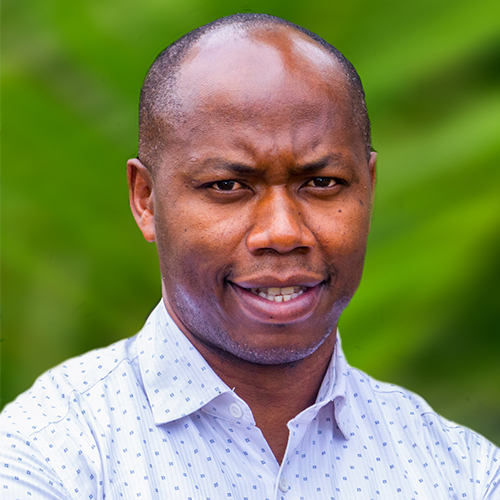
Thomas Kivevele
Country (Nationality)
Tanzania
Grantee Title
Project: Solar–biogas hybrid dryer: an energy efficient and environmentally friendly technology for drying agricultural products
Grantee Description
Research area:
Drying technologies
Host Organisation & country:
Nelson Mandela African Institution of Science and Technology (NM-AIST), Tanzania
Summary
Post-harvesting loss for cereals and for perishable crops such as fruits and vegetable contribute to food shortages, malnutrition and poverty in Africa. The agricultural produce is wasted not only due to lack of storage and processing facilities, but also due to limited knowledge of processing technologies. Proper drying technologies can reduce post-harvest losses, improve food quality and eradicate poverty. Dr. Kivevele’s research will investigate thermal and drying performance of a novel solar-biogas hybrid dryer; an eco-friendly drying technology.
Grantee Description
Dr Thomas Kivevele is a Senior Lecturer at the School of Materials, Energy, Water and Environmental Sciences (MEWES) at the Nelson Mandela African Institution of Science and Technology (NM-AIST), Tanzania. He obtained his Doctorate Degree in Mechanical Engineering (Thermal Energy Systems) from Tshwane University of Technology (TUT), South Africa and his doctoral work focused on experimental optimization of an air source heat pump dryer for drying agricultural products.
Dr. Kivevele has been conducting ground-breaking and diverse research in the field of drying technologies, solar applications (mini/smart grid, stand-alone/solar home systems), biofuels, energy auditing and management. His ambition is to continue to expand and adopt novel and eco-friendly drying technologies in order to combat the problem of post-harvest loss. He aims to advance a research niche on clean drying technologies, train young African scientists, and develop policy briefs to advise decision-makers on how to increase people's well-being by lowering post-harvest losses through drying.
Project: Solar–biogas hybrid dryer: an energy efficient and environmentally friendly technology for drying agricultural products
Due to absence of proper storage and marketing facilities, farmers in African countries are forced to sell their agricultural produces at throw away prices leading to economic losses. Farming in African Countries like Tanzania is dominated by subsistence farmers located in rural areas, mostly not connected to national grid, they use biomass/fuelwood and natural sun for drying. Excessive use of biomass increases CO2 emission, decreases carbon sinks and enhances climate change impacts. Furthermore, improper storage and drying such as open sun drying can cause aflatoxin, dust contamination and dried products become of poor quality. Solar dryers are among promising technologies for proper drying and transition to low carbon emission. Although solar drying technologies have been developed in sub-Saharan Africa, most countries such as Tanzania have experienced limited market penetration due to the need of more research. Nevertheless, most of the developed solar dryers are passive systems which solely depend on the presence of sunlight, it become useless in the absence of sunshine. To facilitate non-sunny drying, this project intends to develop a novel solar-biogas hybrid dryer. Biogas is a renewable fuel made from the decomposition of organic matter like animal manure and food wastes. Biogas system will be employed as a back-up when solar technology is down. The technology will be made using cheaper and readily available local materials. The technology will ensure food security, improve income to farmers while reducing environmental degradation and greenhouse gas emissions.
